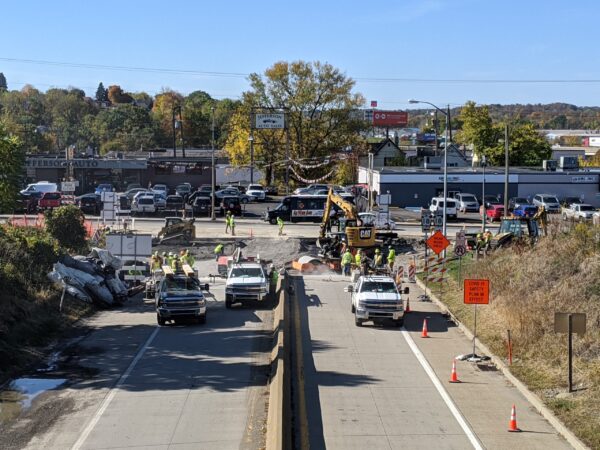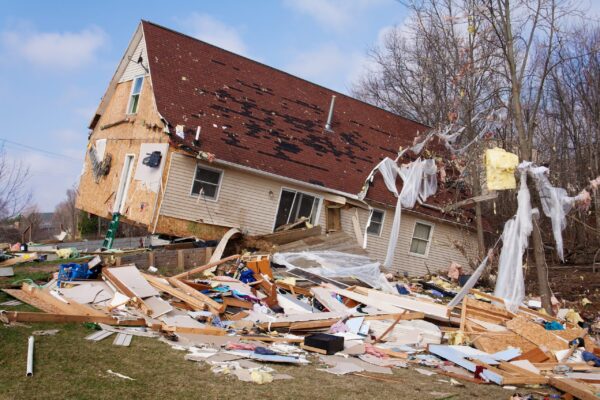

1. Can you describe your experience a bit?
In school, I studied civil engineering. I took up this field basically because everybody used to say that it was a man’s career so I decided to take the challenge. Professionally, I have 15 years of experience on infrastructure projects, i.e. buildings, bridges, tunnels, roads, and facilities management, as well as private-sector projects such as hotels and residential developments.
On my first job out of college, I had the opportunity to supervise the construction process on roads, bridges, and tunnels for a main thoroughfare through Mexico City. The initial challenge was to fit myself into the construction lifestyle, which can involve very long hours of work. In this process, I felt like I had to demonstrate that I was as effective as my coworkers who were men.
2. Have you made the progress you’ve wanted to in your career? What has helped to motivate you?
Yes, I have. After working for a few other firms in several roles, I joined Hill International in 2013. This was great for me. In my time with Hill, I’ve progressed as well. My initial position on Hill’s Mexico team was as a document controller. Now I´m proud to say that I’m a project administrator and I´ve received client recognition for work well done. For me, surpassing client expectations is crucial and motivating. So to be recognized for achieving my goals is very rewarding. Of course, it´s not easy. But on the road of my career I´ve learn how to negotiate and meet clients’ needs with Hill´s policies and get projects done. Another motivation has always been my loved ones; they are always on my mind.
3. What do you do for Hill? What do you like about being here?
As mentioned, I’m currently a project administrator. My team just finished a luxury residential project in Mexico City and now I’m supporting the final stage of another project, which belongs to the same client. It is a complicated project and so the administrative side is very demanding, but I really enjoy it. I joined the industry for the challenge that it seemed to present, so I like tackling very difficult tasks.
All the experiences I’ve had with Hill have been professionally satisfying. For example, the Centro Operativo Bancomer project was really interesting for me. I didn’t start the job as a project administrator, but I still had to learn a lot about how to deal with the client’s unique administrative requirements and execute accordingly. It was very fulfilling to take on added responsibilities and help the project succeed.
I’d like to continue taking on responsibilities with Hill, too. In the next several years, I´d like to become a project manager. I am confident I would rise to the challenges of that position like I have risen past the other challenges in my career.
4. What is it like to be a woman in this industry?
In my first experiences in the industry, conditions were not suitable for women. There weren´t lavatories for ladies, so I used to not drink any water all day. Of course that wasn’t good and at the end of the project I got sick. My own conditions have improved dramatically from there. I certainly don’t face such exclusion at Hill. But I know some women in the rest of the construction industry still have to deal with those and other poor working conditions.
Still, construction can be a fulfilling career. And I know women can contribute positively to construction projects. So I would recommend that young women just joining the industry don’t get demotivated at first, if they don’t get the chances they are looking for. Keep working hard and tackling the challenges that are available.
Senior professionals need to understand that women can contribute. Women often have to fulfil many particular and important roles in their lives: the roles of spouse, mother, and professional, for example. With this comes adaptability while working in challenging and changing conditions. To make the industry more equal, women must be given a variety of opportunities and responsibilities so that they can demonstrate their effectiveness.
Share

April 11, 2024 | Articles
A Model Move: Managing Move-In at the Sylvia H. Rambo U.S. Courthouse

April 8, 2024 | Articles

April 4, 2024 | Articles
Driving Growth and Seizing Opportunity: Lukasz Marcinkiewicz Joins Hill as Country Manager, Poland

April 1, 2024 | Articles

March 25, 2024 | Articles
Leveraging Data Analytics and Dashboards for Enhanced Project Performance

February 26, 2024 | Articles
Continuity, Creativity, and Collaboration: Delivering PennDOT’s Route 18 Signal Upgrade
We and use cookies and other tracking technologies to improve your experience on our website. We may store and/or access information on a device and process personal data, such as your IP address and browsing data, for personalised advertising and content, advertising and content measurement, audience research and services development. Additionally, we may utilize precise geolocation data and identification through device scanning.
Please note that your consent will be valid across all our subdomains. You can change or withdraw your consent at any time by clicking the “Consent Preferences” button at the bottom of your screen. We respect your choices and are committed to providing you with a transparent and secure browsing experience.
| Cookie | Duration | Description |
|---|---|---|
| cookielawinfo-checbox-analytics | 11 months | This cookie is set by GDPR Cookie Consent plugin. The cookie is used to store the user consent for the cookies in the category "Analytics". |
| cookielawinfo-checbox-functional | 11 months | The cookie is set by GDPR cookie consent to record the user consent for the cookies in the category "Functional". |
| cookielawinfo-checbox-others | 11 months | This cookie is set by GDPR Cookie Consent plugin. The cookie is used to store the user consent for the cookies in the category "Other. |
| cookielawinfo-checkbox-necessary | 11 months | This cookie is set by GDPR Cookie Consent plugin. The cookies is used to store the user consent for the cookies in the category "Necessary". |
| cookielawinfo-checkbox-performance | 11 months | This cookie is set by GDPR Cookie Consent plugin. The cookie is used to store the user consent for the cookies in the category "Performance". |
| viewed_cookie_policy | 11 months | The cookie is set by the GDPR Cookie Consent plugin and is used to store whether or not user has consented to the use of cookies. It does not store any personal data. |



